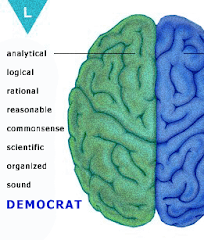You see, TKR would have you believe that, were it not for KDHE director Rod Bremby's rejection of the plant and Gov. Kathleen Sebelius' subsequent decision to thrice veto bills overturning that decision, Hyperion would be on its way to Pottawatomie County. Oh, and apparently gas prices would be like $0.30/gallon in NE Kansas. To prove this, they link to this story in the Capital-Journal written by James Carlson.
What should be noted about this story is that no one from the KDHE or from Hyperion is ever quoted as saying the Holcomb decision caused the plant to go to South Dakota. All the evidence that is given is from a low-level county board member and some vague references to the regulation in emails to government officials.
Obviously, Hyperion was concerned, but according to the story, Bremby did everything he could to land this refinery.
Doesn't sound very uncertain to me. Obviously, Secretary Bremby is not going to give them carte blanche by promising to approve a permit he hasn't even seen yet, but it appears to me that he is making it very clear that their chances are good.Phillips wrote to Kansas commerce secretary David Kerr on Jan. 22 asking for a commitment to approve the air-quality permit if Hyperion applied in Kansas. Bremby replied Feb. 11, "Kansas remains open for business."
Bremby wrote he couldn't commit to issuing the permit but said if Hyperion submitted the same application as they did in South Dakota, there "should not be a problem with issuance."
This issue, however, is moot. The story confirms once again that, Holcomb decision or not, Kansas had next to no chance at getting the facility anyway. Before any of this happened, Hyperion had already purchased land in South Dakota and was in the process of getting it zoned.
Next time boys and girls, read the article (the ENTIRE article) before you link to it and make sure it doesn't disprove your entire position.In June 2007, after media speculation about a mystery company buying up land around Elk Point, S.D., Hyperion announced it was considering the South Dakota city as a location.
Soon after, RTP Environmental Associates Inc., a consultant for Hyperion, began work on the permitting process with South Dakota officials.
In September, Colin Campbell, the RTP employee in charge of the Hyperion project, e-mailed the Environmental Protection Agency, saying he would be submitting an air-quality permit application for the South Dakota location soon.
"A different site could ultimately be selected, but we can deal with that circumstance if and when it arises," Campbell wrote.
Carlson acknowledges South Dakota was moving ahead. "We were probably a little behind," he said. "(Hyperion was) renewing land options up there."
The Kansas Department of Commerce points to the South Dakota site announcement and the subsequent months of dialogue between that state and Hyperion as a clue that Kansas was a backup.
"All indications in the summer and fall were that the gears were turning in South Dakota and that South Dakota had emerged as the top candidate," said Joe Monaco, spokesman for the commerce department.
This concludes today's session of Blogging 101.



5 comments:
I'm curious. If Bremby would not approve a plant that emits 11 million tons of CO2, why would anyone believe he would approve one that emits 17 million tons?
i believe the discussion was the Sunflower application was far less specific than the Hyperion app that was submitted in South Dakota.
You miss the second point. It doesn't matter whether the plant would be confirmed or not, this facility was going to be in South Dakota anyway. Kansas was only in the running as a secondary choice if their zoning didn't go through in South Dakota. It did. Even if Holcombe was up and belching carbon in to the atmosphere, Hyperion would be in Elk City, S.D. just the same.
The question is still unanswered:
If Bremby would not approve a plant that emits 11 million tons of CO2, why would he say "... should not be a problem with issuance" for a plant that emits 17 million tons?
Was there a reason why Holcomb was not approved other than its carbon dioxide emissions? Not according to Bremby's explanation.
It was answered, you just didn't like the answer.
Anonymous said...
i believe the discussion was the Sunflower application was far less specific than the Hyperion app that was submitted in South Dakota.
Post a Comment